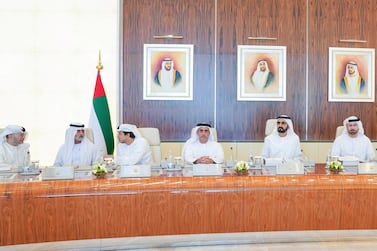The UAE has been ranked top in the Middle East in respect of its readiness to navigate advances in artificial intelligence, according to a new report.
Researchers found the Emirates came 19th worldwide, with Singapore claiming the number one spot, followed by the UK, Germany, the US and Finland.
The UAE was also ranked fourth across the Asia Pacific region, behind Singapore, Japan and India.
The study noted the Middle East had proved receptive to AI and its potential impact, indicating its awareness of its future significance.
“In the Middle East, the oil-rich Gulf states looking to diversify their economies have given strong signals regarding the importance of AI to their futures,” the report said.
“The UAE have announced the world’s first dedicated AI minister while Saudi Arabia recently gave citizenship to a robot.
“The UAE in particular has various AI-related strategies, around areas such as smart cities and autonomous transport, that may accelerate AI adoption.”
The new report - called the Government Artificial Intelligence Readiness Index - was released on Tuesday.
It was commissioned by AI consultancy firm Oxford Insights and the International Development Research Centre, a Canadian entity dedicated to promoting growth and reducing poverty.
Researchers examined more than 190 countries worldwide by assessing aspects of governance, infrastructure, skills and education in an effort to measure the readiness of nations to manage the impact of AI.
The report found oil-price volatility had proved a mixed blessing for Middle Eastern economies, on the one hand impacting revenue streams while on the other necessitating more rapid advances in other sectors to compensate.
“Oil-price volatility can affect investment but it also creates an incentive for the diversification of the Gulf economies beyond their traditional oil-based industries,” the report said.
“While the focus so far has been on investment in AI-adoption, much more will need to be done by these governments to prepare these societies to both take advantage of and mitigate the potential disruptions in AI growth.”
The study also outlined how more developed economies tended to dominate advances in AI technology.
It warned that less developed nations needed to remain competitive in order to avoid growing inequalities between countries.
“Given that we are on the cusp of seeing widespread AI implementation across a number of sectors, it is important that governments take notice of the findings [of the report] to ensure that these inequalities do not become further entrenched as we enter the fourth industrial revolution”, said Richard Stirling, co-founder and CEO of Oxford Insights.








